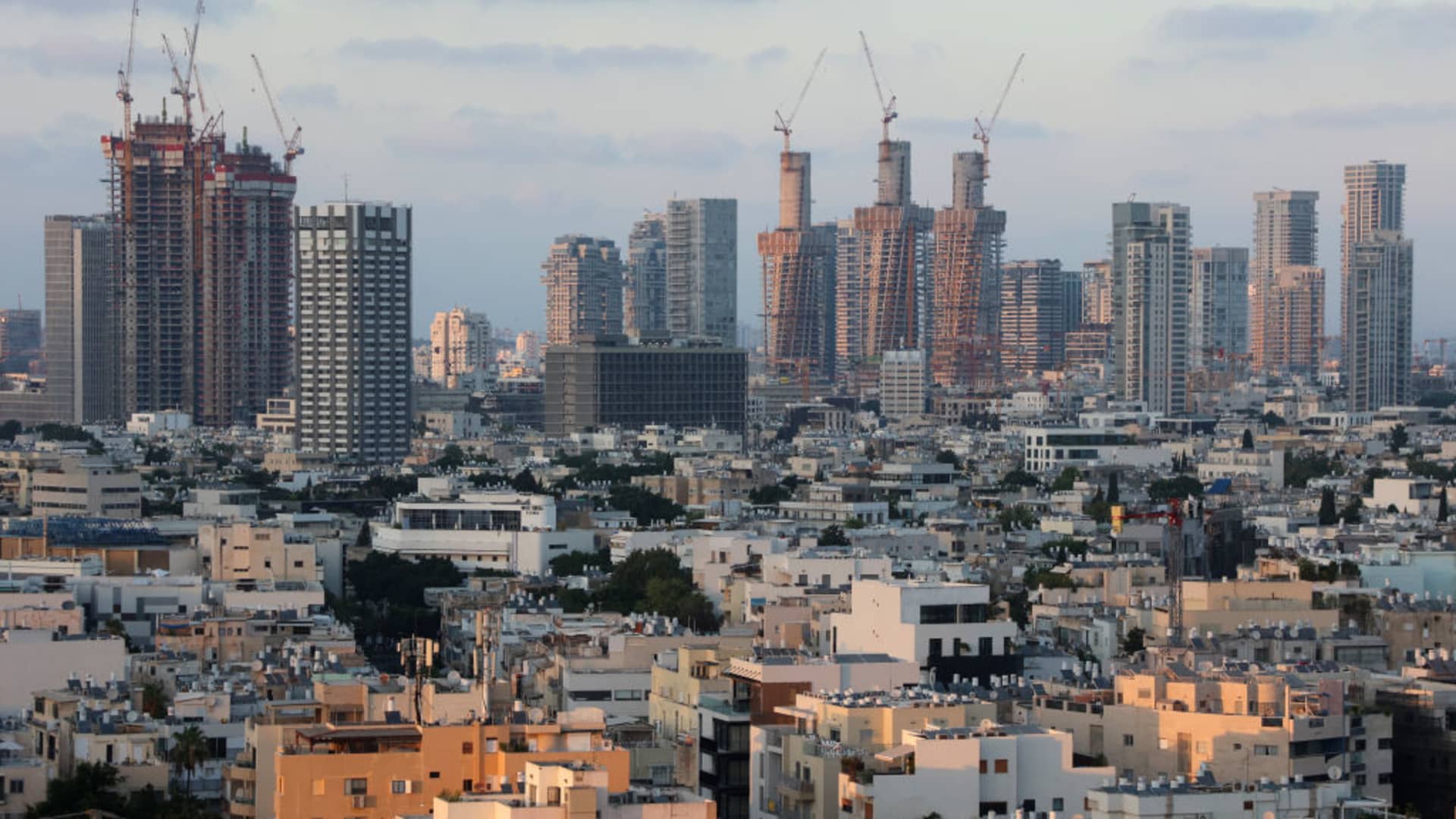A general view shows the Israeli city of Tel Aviv, on August 12, 2024, amid regional tensions during the ongoing war between Israel and the Palestinian Hamas movement in the Gaza Strip.
Gil Cohen-magen | Afp | Getty Images
Israel’s economy grew more than expected in the third quarter, bouncing back somewhat from a weak spell since the start of war in Gaza with Palestinian Islamist group Hamas last October and another reason interest rates are unlikely to fall anytime soon.
The Central Bureau of Statistics said in an initial estimate on Sunday that gross domestic product grew by an annualised 3.8% in the July to September period, above a 2.9% consensus in a Reuters poll. On a per capita basis, GDP gained 2.6% in the quarter.
Overall growth was led by gains in consumer spending, which rose 8.6%, a 21.8% jump in investment in fixed assets — especially in residential building — and a 1.7% rise in exports, offsetting a 10.8% drop in government spending.
As a result, GDP of the business sector alone grew 5.4% last quarter.
Second-quarter GDP growth was confirmed at 0.3% annualised.
The war has raged in Gaza since Hamas’ Oct. 7, 2023 cross-border attack on southern Israel. The war has since expanded to battling Hezbollah in Lebanon.
Figures issued on Friday showed Israel’s inflation rate held steady at 3.5% in September but staying above the government’s annual inflation target of 1-3%.
Government officials have largely blamed war-related supply issues for the spike in inflation at a time when inflation is largely easing globally.
The Bank of Israel next decides on rates on Nov. 25.
After cutting its benchmark interest rate in January, the central bank left the rate unchanged at subsequent meetings in February, April, May, July, August and October, citing geopolitical tensions, rising price pressures and looser fiscal policy due to the war.
Israeli central bankers have said that further rate cuts, which have begun in the United States and Europe, are unlikely but warned of rate hikes should inflation remain high.





